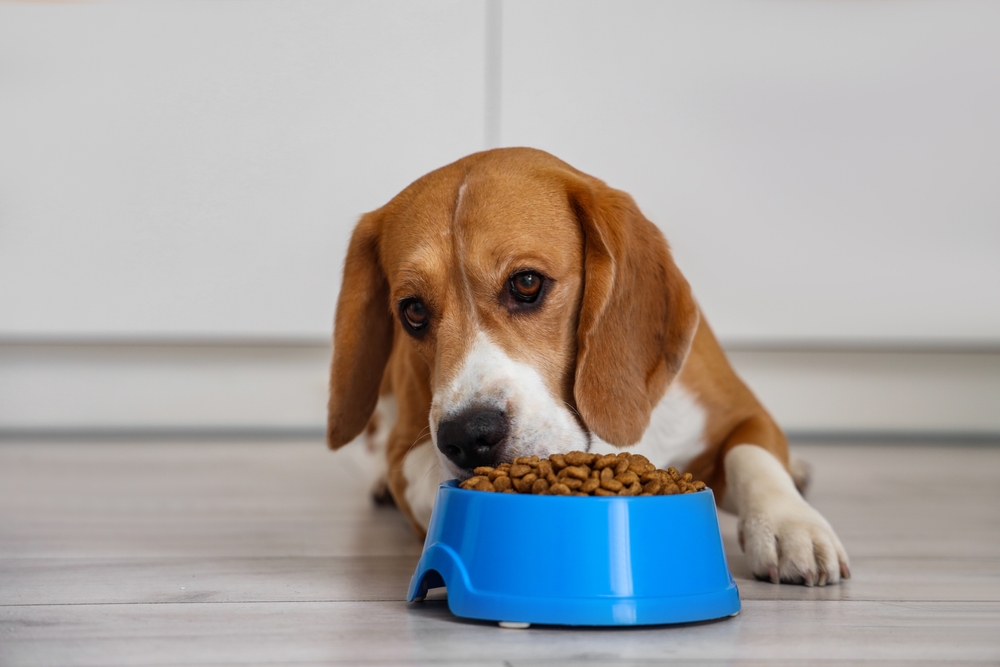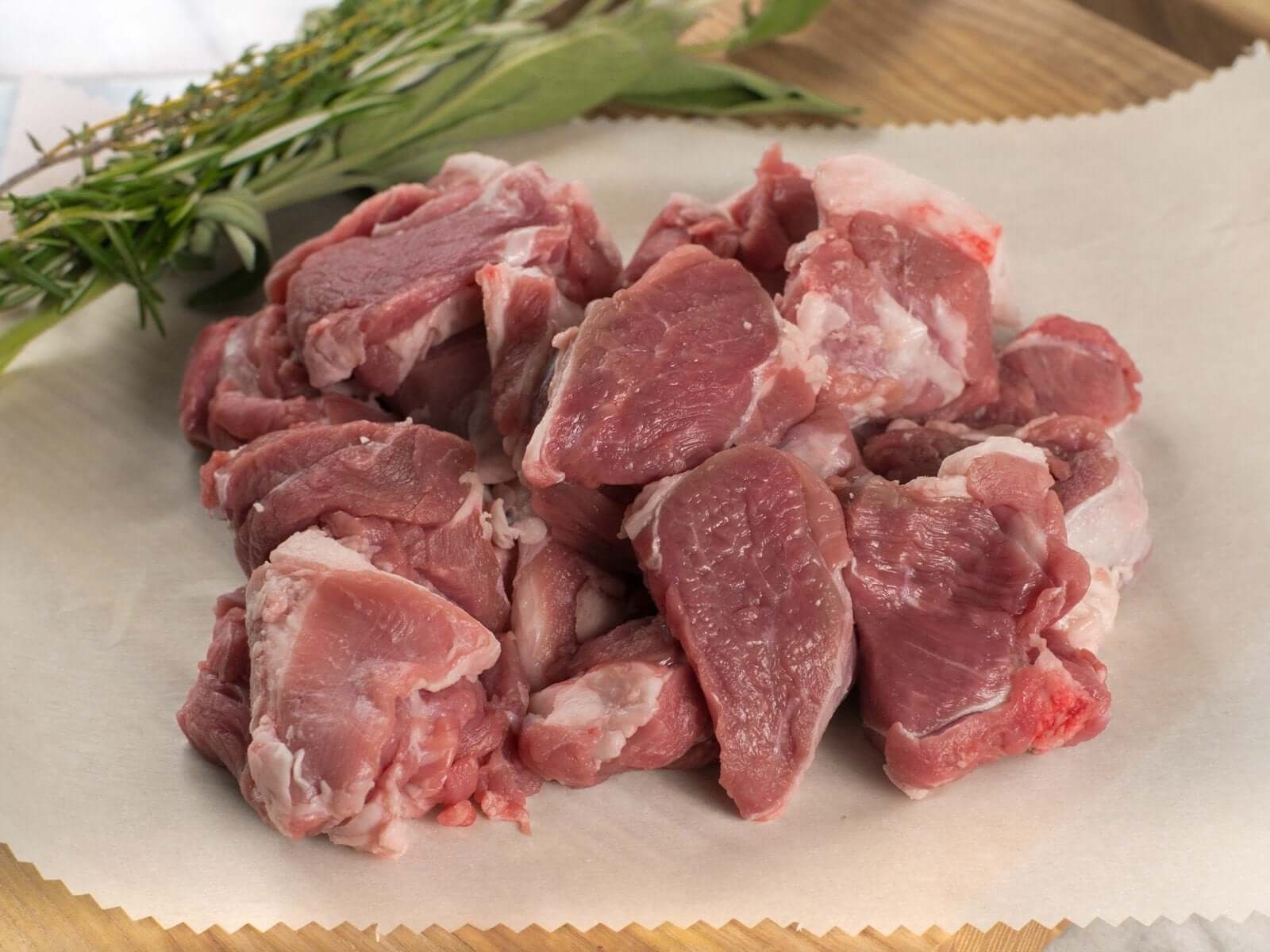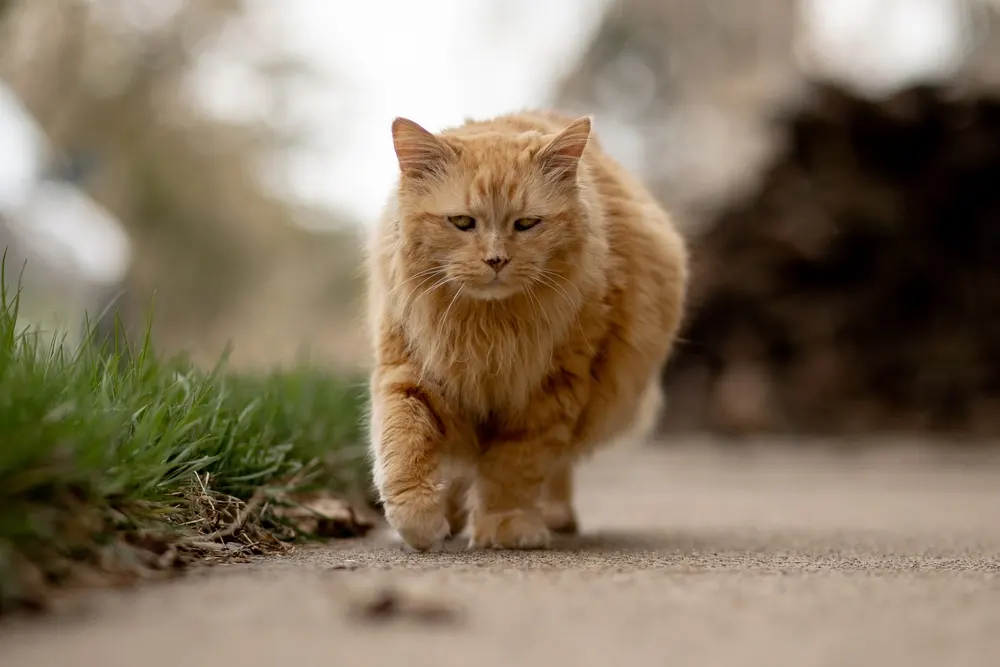
Does your dog regularly bring up bile?
October 19th 2022
Is your dog regularly vomiting foamy yellow liquid in the early hours of the day – usually before breakfast? They could be suffering from Bilious Vomiting Syndrome (BVS).
Bilious Vomiting Syndrome
This condition is characterised by the dog vomiting bile, usually when they’ve not eaten for a few hours. Bile is a yellow-green substance that is produced to aid digestion by breaking down fats. It is produced in the liver and stored in the gallbladder.
In the case of BVS it is thought that fluid from the first part of the small intestine -the duodenum flows backwards into the stomach. Some of this fluid contains bile which irritates the stomach lining leading to nausea and vomiting. Other signs of this condition include reduced appetite, drooling or lip-smacking.
There are several theories regarding why this happens when the dog has not eaten and the stomach is empty, including pressure variation between the stomach and duodenum[1], but more research is needed.
How is Bilious Vomiting Syndrome treated?
First, it is important to ensure your dog gets the correct diagnosis, there could be other reasons they are vomiting bile and therefore a veterinary check-up is an essential step.
Other reasons for vomiting bile include pancreatitis, intestinal blockage/obstruction, adverse food reactions, an inflammatory condition or cancer.
If other conditions are ruled out, then BVS may be treated with medications to protect the stomach lining, reduce nausea or acid, however dietary changes are often very successful.
What dietary changes can help with BVS?
Feeding more frequently than once or twice a day can help some dogs; changing to three or four small meals may help. Feeding a small meal late at night before bedtime and as early as possible in the morning can also help reduce the amount of time the stomach is empty for.
If the underlying cause of the issue is an adverse food reaction (an allergy or intolerance) then these dogs may respond well to a hypoallergenic diet with novel ingredients or hydrolysed ingredients. Please ask the Vet’s Kitchen team for more information on this: nutrition@vetskitchen.co.uk
[1] Ferguson, L., Wennogle, S.A. & Webb, C.B. 2016, “Bilious Vomiting Syndrome in Dogs: Retrospective Study of 20 Cases (2002-2012)”, The Journal of the American Animal Hospital Association, vol. 52, no. 3, pp. 157-161.
Cover image:

 Shop Dog
Shop Dog
 Shop Cat
Shop Cat
 Vet Know-how
Vet Know-how Contact
Contact


